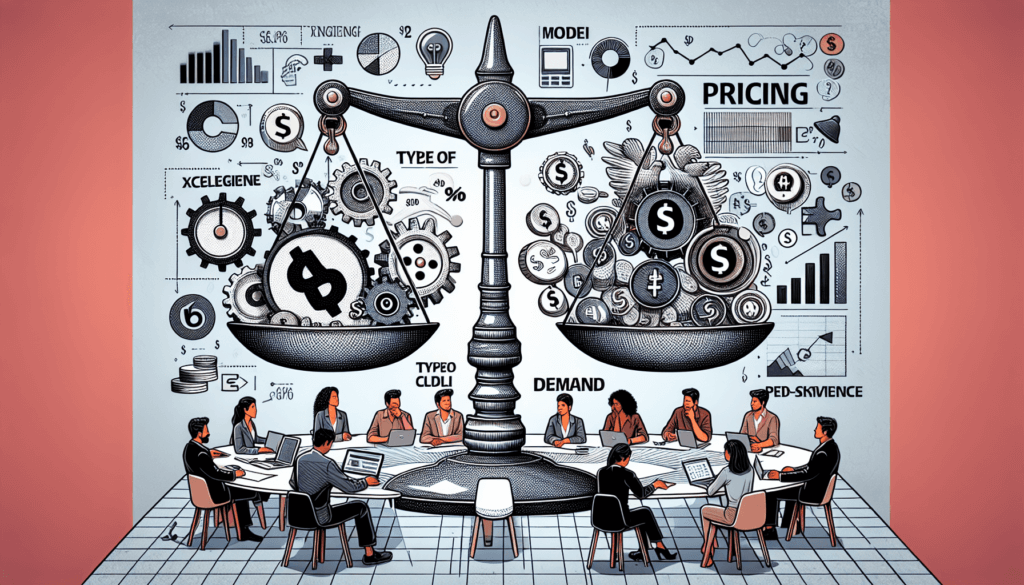Whether you’re a small business owner or an aspiring blogger, understanding content creation pricing is essential for achieving your goals. From blog posts to social media content, the cost of creating engaging and valuable content can vary significantly. In this article, we will explore the factors that influence content creation pricing, providing you with insights and tips to help you budget effectively for your content needs.

Factors Influencing Content Creation Pricing
Type of Content
The type of content you need created will greatly influence the pricing. Different types of content require varying levels of expertise, research, and time investment. For example, blog posts and social media content tend to be shorter and less complex, while whitepapers and video scripts require a deeper level of research and expertise.
Length and Complexity
The length and complexity of the content also play a role in determining the pricing. Longer and more complex pieces of content generally require more time and effort to create, which can result in higher costs. This is because the writer will need to spend additional time conducting research, organizing information, and ensuring that the content is well-structured and coherent.
Research and Expertise
The amount of research and expertise required for content creation can impact the pricing. If your content needs to be highly specialized or requires in-depth knowledge of a particular topic, you may need to consider hiring a content creator with specific expertise in that area. Content creators with niche expertise often command higher rates due to the level of knowledge and research required to produce high-quality content.
Timeframe and Deadlines
The timeframe and deadlines associated with your content creation project can affect the pricing. If you have a tight deadline or require the content to be delivered within a short period of time, the content creator may need to prioritize your project and adjust their workload accordingly. This may result in higher rates due to the need for expedited work, especially if it requires working during evenings or weekends.
Revision and Editing
The amount of revision and editing required for your content can influence the overall pricing. If you anticipate the need for multiple rounds of revisions or extensive editing, it will require the content creator to invest additional time and effort into refining the content to meet your expectations. This additional work may be factored into the pricing, so it’s important to be clear about your revision and editing expectations from the beginning.
Types of Content and Their Pricing
Blog Posts
Blog posts are a popular form of content that are typically priced based on the word count. Prices can range from $0.05 to $0.50 per word, depending on factors such as writer expertise, the complexity of the topic, and the writer’s level of research involvement.
Web Copy
Web copy refers to the text content on websites and landing pages. Pricing for web copy can vary widely, depending on factors such as the length and complexity of the copy, the target audience, and the level of SEO optimization required. It is often priced on a project basis, with costs ranging from a few hundred to several thousand dollars.
Social Media Content
Social media content includes posts, captions, and updates for platforms like Facebook, Twitter, and Instagram. Pricing for social media content can be per post or based on a monthly retainer fee. The cost per post can range from $10 to $100, depending on the content creator’s experience, the level of engagement expected, and the number of social media platforms to be managed.
Whitepapers and eBooks
Whitepapers and eBooks are longer-form content pieces that require extensive research and expertise. Pricing for these types of content can vary significantly based on factors such as the length of the document, the level of research required, and the writer’s level of expertise. Prices can range from a few hundred to several thousand dollars.
Video Scripts
Video scripts are the written content for video productions. The pricing for video scripts can depend on factors such as the length of the script, the complexity of the content, and the writer’s level of expertise in video production. Costs can range from a few hundred to several thousand dollars.
Infographics
Infographics combine text and visuals to present information in a visually appealing way. Pricing for infographics can vary based on factors such as the complexity of the design, the amount of research and data visualization required, and the number of revisions needed. Prices can range from a few hundred to several thousand dollars.
Case Studies
Case studies are detailed accounts of specific projects or experiences. Pricing for case studies can depend on factors such as the level of research and interview required, the complexity of the case study, and the length of the document. Costs can range from a few hundred to several thousand dollars.
Pricing Models for Content Creation
Per Word Pricing
Per word pricing is a common pricing model used for content creation, especially for shorter pieces like blog posts and social media content. The price per word can vary based on factors such as the writer’s expertise, the complexity of the topic, and the level of research involved. This pricing model allows for flexibility, as it allows you to pay for the exact amount of content you need.
Fixed Project-Based Pricing
Fixed project-based pricing is a pricing model commonly used for longer-form content such as whitepapers, eBooks, and case studies. With this model, the content creator provides a fixed price for the entire project, taking into account factors such as the length of the content, the complexity of the topic, and the level of research required.
Hourly Rate Pricing
Hourly rate pricing is a pricing model where the content creator charges an hourly rate for their services. This model is often used when the scope of the project is unclear or when the client requires ongoing support. The hourly rate can vary based on factors such as the content creator’s experience, expertise, and the level of research or editing involved.
Retainer Arrangements
Retainer arrangements involve hiring a content creator on a monthly or ongoing basis. With this pricing model, you pay a fixed fee each month in exchange for a certain number of content deliverables or a set number of hours of work. Retainer arrangements are beneficial for clients who require regular content updates or ongoing content management.

Content Creation Pricing by Industry
Technology
In the technology industry, content creation pricing can vary depending on the complexity of the topic and the audience. Technology-related content often requires in-depth research and expertise, which can increase the overall pricing. Given the fast-paced nature of the industry, shorter turnaround times and quick revisions may also affect the pricing.
Finance
In the finance industry, content creation pricing can be higher due to the specialized knowledge and expertise required. Finance-related content often involves complex topics and requires meticulous attention to detail. Additionally, the need for compliance with industry regulations and the target audience’s sophistication can contribute to higher pricing.
Healthcare
In the healthcare industry, content creation pricing can be influenced by factors such as the level of research required, the complexity of medical terminology, and the need for accuracy and compliance with healthcare regulations. Healthcare content often requires subject matter experts and may involve collaboration with medical professionals, which can impact the overall pricing.
E-commerce
Content creation pricing for the e-commerce industry can vary depending on factors such as the volume and frequency of content needed, the level of SEO optimization required, and the target audience’s preferences and behaviors. E-commerce content often involves product descriptions, blog posts, and social media content to attract and engage customers.
Travel and Hospitality
In the travel and hospitality industry, content creation pricing can depend on factors such as the level of research and expertise required, the target audience’s travel preferences, and the need for visual content. Creating compelling content for travel and hospitality often involves storytelling, showcasing destinations, and highlighting unique experiences, which can influence the overall pricing.
Qualities of Professional Content Creators
Industry Knowledge
A professional content creator should possess industry knowledge relevant to the content they are creating. This knowledge allows them to understand the nuances of the topic, use industry-specific terminology, and produce accurate and authoritative content. Industry knowledge also helps content creators tailor the content to the target audience’s needs and expectations.
Writing Skills
Strong writing skills are essential for a professional content creator. They should have the ability to write in a clear, concise, and engaging manner while adhering to grammar and style guidelines. Good writing skills enable the content creator to communicate ideas effectively and capture the reader’s attention, making their content more impactful and memorable.
Research Abilities
Content creators need to possess strong research abilities to gather relevant and reliable information on the topic at hand. They should be skilled at conducting thorough research, including finding reputable sources, synthesizing information, and incorporating it seamlessly into their content. The ability to fact-check and verify information is crucial for producing accurate and credible content.
Creativity
Professional content creators should have a creative mindset to generate original and compelling content. Creativity allows them to approach topics from unique angles, use storytelling techniques, and engage the audience on an emotional level. Creative content stands out in a crowded market, capturing the reader’s attention and leaving a lasting impression.
Communication Skills
Effective communication skills are essential for professional content creators. They need to understand the client’s expectations, ask relevant questions, and actively listen to feedback. Clear communication ensures that the content creator understands the project requirements and can deliver content that meets the client’s needs. It also enables them to collaborate effectively with clients and other team members.
Factors to Consider when Hiring Content Creators
Budget
Before hiring a content creator, it’s important to establish a budget. Know how much you are willing to invest in content creation and what you expect in return. Keep in mind that high-quality content often comes at a higher price, so be realistic about your budget and consider the value that the content will bring to your business.
Quality vs. Quantity
Consider whether you prioritize quality or quantity when it comes to content creation. Some businesses may prefer to invest in fewer high-quality pieces, while others may require a consistent flow of content. Communicate your preferences to the content creator and find a balance that suits your needs and budget.
Experience and Portfolio
When hiring a content creator, it’s essential to review their experience and portfolio. Look for a content creator who has worked on similar projects in your industry or has demonstrated expertise in your niche. Review their previous work to assess the quality of their writing and their ability to meet client expectations.
Work Processes and Communication
Consider the content creator’s work processes and communication style. Do they have a clear project management system in place? How often will they provide updates on the progress of the project? Clear and open communication is crucial for a successful collaboration, so ensure that the content creator’s work processes align with your expectations.
Negotiating Content Creation Rates
Set a Budget Range
When negotiating content creation rates, it’s helpful to establish a budget range. This provides flexibility and allows both parties to find a pricing structure that works for them. Clearly communicate your budget range to the content creator, and be open to discussing their rates within that range.
Provide Detailed Project Briefs
To ensure accurate pricing, provide detailed project briefs that outline your expectations, requirements, and deadlines. The more information you provide upfront, the better the content creator can assess the scope of the project and provide an accurate pricing quote.
Ask for Pricing Breakdowns
If you find the pricing to be on the higher side, ask the content creator for a breakdown of the costs. This can help you understand the component costs involved and identify areas where adjustments can be made. Discuss any concerns or alternative pricing structures that may better suit your budget.
Consider Long-Term Collaborations
Content creators often offer discounts for long-term collaborations. If you anticipate regular content needs, consider entering into a retainer agreement or ongoing contract. Long-term collaborations can result in discounted rates and foster a strong working relationship between you and the content creator.
Additional Costs in Content Creation
Stock Images or Graphics
Incorporating stock images or graphics into your content may incur additional costs. Content creators may charge extra for sourcing and licensing relevant visuals to accompany the text. Discuss this with the content creator upfront to get a clear understanding of any additional costs involved.
Keyword Research and SEO Optimization
If you require keyword research and Search Engine Optimization (SEO) optimization for your content, expect additional costs. This involves identifying relevant keywords, optimizing content for search engines, and ensuring maximum visibility. SEO expertise can contribute to higher pricing due to the specialized knowledge and effort required.
Proofreading and Editing
Proofreading and editing services may be provided at an additional cost by the content creator or a separate editor. If you require extensive editing or proofreading, discuss this with the content creator and inquire about any associated costs.
Performance Tracking and Analytics
Monitoring the performance of your content through tracking and analytics may require additional tools and services. Content creators may charge for integrating analytics solutions or providing performance reports. Discuss your tracking needs with the content creator and agree upon any associated costs.
Content Creation Pricing Strategies
Competitive Pricing
Competitive pricing involves setting your content creation rates based on market standards and prices offered by other content creators in your industry. It’s important to research and understand what your competitors are charging to ensure that your pricing remains competitive while still reflecting the value you provide.
Value-Based Pricing
Value-based pricing focuses on charging clients based on the perceived value of the content they receive. This strategy takes into account the impact the content will have on the client’s business and the value it brings in terms of increased traffic, engagement, lead generation, or conversions. Communicate the value of your content to clients, so they understand the impact it can have on their business.
Tiered Pricing
Tiered pricing involves offering different pricing packages or levels of service based on the client’s needs and budget. This allows clients to choose a package that aligns with their requirements and gives them options to upgrade or scale their content creation efforts in the future.
Bundle Pricing
Bundle pricing bundles together multiple content creation services or deliverables into one package at a discounted rate. This can offer cost savings for clients who require multiple types of content or ongoing content creation services. Bundling services can also encourage clients to invest in additional content creation, resulting in a higher average transaction value.
Evaluating ROI of Content Creation
Traffic and Engagement Metrics
Measure the impact of your content creation efforts by tracking metrics such as website traffic, page views, and time spent on page. Analyze engagement metrics like bounce rate, social shares, and comments. Increased traffic and engagement indicate that your content is resonating with the target audience and generating interest in your brand.
Lead Generation and Conversion Rates
Assess the effectiveness of your content in generating leads and driving conversions. Track metrics such as conversion rates, lead capture form submissions, and email sign-ups. Analyze whether the content is attracting and converting qualified leads, and calculate the return on investment based on the value generated from these conversions.
Brand Reputation and Authority
Consider the impact of your content on your brand’s reputation and authority. Assess factors such as brand mentions, backlinks from reputable websites, and thought leadership recognition. Positive brand reputation and increased authority can contribute to long-term business growth and customer trust.
Customer Retention and Loyalty
Evaluate the role of content in customer retention and loyalty. Analyze metrics such as customer churn rate, repeat purchases, and customer feedback. Content that provides value, educates, and nurtures the customer relationship can foster loyalty, leading to repeat business and positive word-of-mouth referrals.
In conclusion, pricing for content creation is influenced by several factors including the type of content, its length and complexity, the required research and expertise, timeframe and deadlines, and revision and editing requirements. Different pricing models such as per word pricing, fixed project-based pricing, hourly rate pricing, and retainer arrangements offer flexibility for clients. Content creation pricing also varies by industry, with technology, finance, healthcare, e-commerce, and travel and hospitality having distinct considerations. When hiring content creators, qualities such as industry knowledge, writing skills, research abilities, creativity, and communication skills should be evaluated. Negotiating rates can be done by setting a budget range, providing detailed project briefs, asking for pricing breakdowns, and considering long-term collaborations. Additional costs in content creation may include stock images, keyword research, proofreading and editing, and performance tracking and analytics. Pricing strategies such as competitive pricing, value-based pricing, tiered pricing, and bundle pricing offer options for content creators. Evaluating the return on investment of content creation involves measuring traffic and engagement metrics, lead generation and conversion rates, brand reputation and authority, and customer retention and loyalty. By considering these factors and strategies, you can effectively navigate the pricing landscape of content creation and ensure that you get the best value for your investment.


